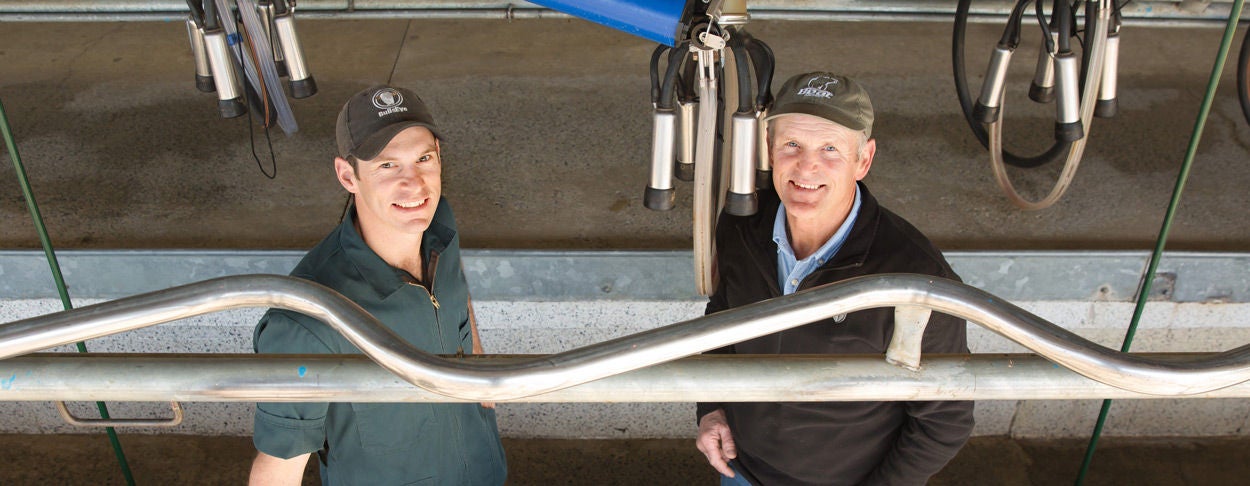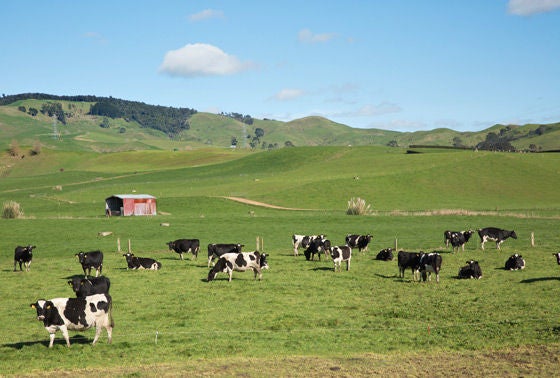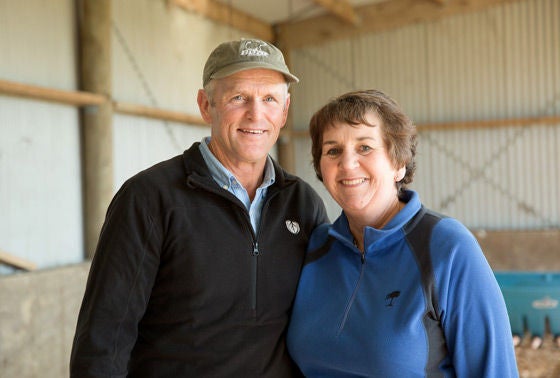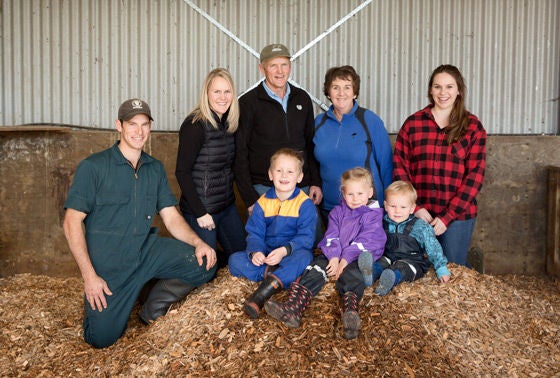
In 1976, at the age of 19, Wim Makker made a decision that turned his life upside down. As a young man living in the Netherlands Wim had recently completed a degree in agriculture, but when employment opportunities were not apparent in his home country he decided to seek employment on the other side of the world, in New Zealand.
Wim says that at the time there were a number of financial incentives that helped make his decision. “At the time I was fortunate that New Zealand and Holland had a bilateral agreement for skilled agricultural migrants,” he said. “There was a labour shortage in New Zealand and this meant that as long as I stayed in the country for at least two years I could travel there for next to nothing, in fact it only cost me $76!”
A young entrepreneur
While the idea of moving so far away from friends and family and his dearly beloved hometown Eemnes seemed crazy to some of his peers, it was indicative of Wim’s entrepreneurial spirit.
“I had always been passionate about owning a farm and I think that everything I’ve done in my life has led me toward that.”

“I guess this all started with a newspaper run I had when I was 10, I earned enough money from that to buy a couple of pigs. I then sold my two pigs and had enough money to buy five, which I then used to breed an additional eight.
Pretty soon I had enough money from the pigs to buy a couple of calves, which eventually meant that I earned money from milking as well.
“By the time I migrated to New Zealand I had saved around $7,000, which helped get me started,” he said. Prior to leaving for New Zealand, Wim had consulted family friends Arie and Thea Rigter of Te Aroha, who had migrated to New Zealand in the early 1950s. They encouraged the move and Wim says that while it was tough leaving behind his parents and seven siblings the opportunities were too exciting to pass up.
“The first few years were mainly used to build up experience in the New Zealand way of farming, from wages to contract milking,”
“Before leaving, I’d been reading the pamphlets all about farming in New Zealand and couldn’t wrap my head around this sharemilking idea. “I mean why would a farmer want to sell his herd to someone who could then earn the money from them? Of course it’s something that is so unique to New Zealand and is exactly how I got my start.”
Kia Ora New Zealand
After landing in New Zealand, Wim began working on a farm near Te Aroha in the Waikato region of the North Island and it wasn’t long before the area had captured his heart.
“The farm had beef cattle, sheep and dairy and was surrounded by hills, I loved working with dogs and when I was up on the hills with them getting the stock in, I’d look around and think ‘this is magic’." he said.
“I also met Maria in my first year in New Zealand, so I got very lucky very early on.”

Maria’s family were also Dutch expatriates and dairy farmers and following the couple marrying in 1979, they began sharemilking for Maria’s parents.
“We sharemilked for four years for Maria’s parents Martin and Toni van Bysterveldt, gradually buying additional herd numbers and machinery and eventually we had enough of a deposit together to purchase our own farm.
We were then the proud owners of 39.6 hectares of land that had an old walk-through cowshed on it and an older but very tidy three bedroom home.” Wim says that while the walk-through gave him a pretty sore back over the first year, buying their first bit of land was the fulfilment of a dream.
“When I first started out the goal was always to own my own farm. I wanted to dig a hole, put my hands on that dirt and say “this is mine”. Maria and Wim replaced the walk-through cowshed the next year and over the following years invested in infrastructure, herd numbers and additional land.

Family and farming
“We’ve gradually acquired a couple of neighbouring blocks and are now milking 300 head of Friesian cows on 108 hectares,” he said.
Their property footprint is not the only thing that has expanded, with Wim and Maria’s children also enjoying the boisterous family upbringing that Wim enjoyed in his youth.
“We have seven children (a son and six daughters) and currently five grandchildren,” Wim said.
“They’ve all had to pitch in and help over the years when things have been busy, even when they were little."
"While we were out milking in the evening the children would help with what needed doing in the house and make sure there was dinner on the table when we got back.”
The Makker’s most recent land acquisition, four years ago, enabled them to increase herd numbers again and made it possible for daughter Heidi and son-in-law Blair Littlejohn to begin working on the farm. It was during this acquisition that Wim and Maria began working with Rabobank, a bank that Wim had in fact held an account with since he was born.
Rabobank’s two parent companies Raffeisen and Boerenleenbank were founded over a century ago by Dutch farmers who sought to provide their rural communities with access to fair and reliable sources of credit, and to help build and support each other’s businesses. The company still operates as a cooperative today. “In my home town of Eemnes, when a baby was born they received a savings account with five guilders in it from the Boerenleenbank, I’ve had the account ever since!”
When Wim and Maria began looking for an alternative banking option for their most recent purchase, they turned to Rabobank.
“We found with our previous bank that they were always in the city office, we wanted someone who knew about farming and would pick up the phone when we called, I loathe talking to voicemail”, Wim said.
“We have a great rapport with the Rabobank team at Morrinsville, these days we’re actually really happy when we see the bank manager coming up the driveway."
The future of dairy
For almost 40 years Wim and Maria have worked together to create a thriving family business. It’s a story that they hope will continue to be experienced by future generations in New Zealand. “For young people to come back and work so hard for so many years, they need to know that owning their own farm is a possibility.”
“They need to have that dream, like we had ours, and know that although it won’t be easy, it will be achievable.”
“It’s getting more challenging for young farmers to be able to afford to come back on the land,” he said. “Compared to when we were getting started, land prices are too high now in comparison to cow prices. A 50/50 sharemilker used to be able to slowly build their herd up to 700-800 cows and then sell half to pay for a deposit on a farm; these days you probably need double that.”
